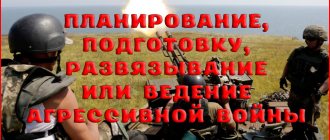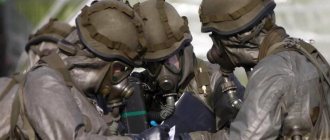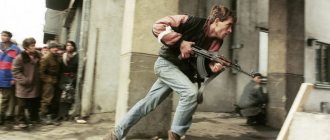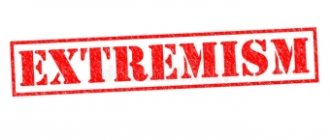The history of the 20th century teaches that calls for war can lead to very sad consequences. Propaganda has the power to pit entire nations against each other and justify terrible war crimes. Therefore, the International Covenant on Civil and Political Rights of December 19, 1966 prohibits any propaganda of war. All civilized countries comply with this pact and, at the legislative level, prohibit agitation for the outbreak of hostilities.
Russia is no exception: Article 354 of the Criminal Code of the Russian Federation provides for punishment for public agitation in favor of military aggression. This offense is characterized as a crime of medium gravity, and the sanctions for it are quite serious.
What are calls to war?
Public calls for the outbreak of an aggressive war - this is the full name of Article 354 of the Criminal Code. But what is an aggressive war? The definition of this concept is contained in the UN Resolution. Aggression refers to the violation of the sovereignty of another country, its territorial integrity and political independence through armed invasion .
Thus, a person who publicly declares the need to send troops somewhere, violate the state borders of another country, annex part of its territory or overthrow the existing political system there will deservedly be punished under Art. 354 of the Criminal Code of the Russian Federation.
Public calls to start a war mean an appeal and psychological impact on an unlimited number of people. The law takes into account the ways in which a criminal can target an indefinite number of people. It can be:
- rallies, meetings, lectures;
- speeches on radio, television, publications in newspapers;
- posting leaflets, sending letters;
- distribution of appeals via the Internet.
Reference. It is necessary to distinguish between calls and incitement to start a war. Although both the first and second involve psychological influence, appeals are still of a general nature and are aimed at a wide audience, while incitement is addressed to a specific person.
The legislator also determines the motives and purposes for which calls for military action are made:
- selfish;
- hatred and hostility towards the political, religious, ethnic characteristics of any state;
- desire for world leadership.
Attention . The motives that guide the offender do not affect the degree of guilt , but are always taken into account when sentencing. The severity of the punishment is influenced by the subject of the crime - his status and the number of people who could hear calls for war.
Commentary to Art. 354 Criminal Code
1. The objective side is characterized by public calls for unleashing an aggressive war, which are reasoning, appeals, development of ideas about the need for aggression, addressed to an indefinite circle of people and of a non-specific nature. Appeals may be oral or written. Publicity presupposes the presence of at least two persons.
2. Calls are recognized as a completed crime from the moment they are carried out, regardless of further developments and consequences.
3. Making public appeals using the media (Part 2) is their dissemination in a periodical printed publication, online publication, on a television channel, radio channel, in a television program, radio program, video program, newsreel program, or other form of periodic dissemination of mass information under constant name (title).
The concept of a person holding a public position in the Russian Federation or a public position in a constituent entity of the Russian Federation is contained in notes 2 and 3 to Art. 285 CC.
Corpus delicti
The object of the crime in these articles is the same - violation of the foundations of peaceful coexistence enshrined in international legal acts. Additional objects of crime are health, life and property. The offense has a formal structure and is considered completed at the time of the commission of calls for war .
Reference. Since the article talks about conscription, a one-time appeal to an indefinite circle of people about the need to unleash hostilities does not constitute a crime and, therefore, is not punishable.
The subjective side of the crime is expressed in deliberate calls. The subject is any person who has reached the age of 16 .
Second commentary to Art. 354 of the Criminal Code of the Russian Federation
1. The object of this crime (as well as that provided for in Article 353 of the Criminal Code of the Russian Federation) is peace and peaceful coexistence of states.
2. The objective side of the crime is expressed in public calls for aggressive war, i.e. in incitement actions aimed at unleashing a war of aggression.
3. The subject of the crime provided for in Part 1 of the article in question is a person who has reached 16 years of age.
4. The subjective side is characterized by direct intent.
5. Part 2 art. 354 of the Criminal Code of the Russian Federation provides for liability for the same actions if they are committed using the media or by a person holding the highest public position of the Russian Federation or a subject of the Russian Federation.
Classification and penalties for calls for war
Art. 354 consists of two parts. The first part without classifying features is punishable:
- a fine of up to 300 thousand rubles. , or wages for two years;
- imprisonment for up to three years.
The second part of the article provides for increased criminal liability. Calls using the media and calls made by a person holding a public office may be punished:
- a fine of 150 thousand rubles, or wages for a period of one to three years ;
- imprisonment for up to five years with a ban on engaging in certain activities or holding certain positions for up to three years.
Calls made by a civil servant or circulated through the media have an increased danger. In the first case, the person has a certain status and represents power, therefore, calls from a civil servant may seem like the official position of the state and have a colossal impact on the masses.
In the second case, the media can convey war propaganda to a huge number of people, which can also lead to dangerous precedents.
The intent of the criminal is to incite an indefinite number of people to prepare and start a war, but if “thanks to” these appeals a military conflict occurs, the culprit will be held responsible only under “his own”, Article 354 of the Criminal Code of the Russian Federation.
At the same time, an indoctrinated militiaman or a mercenary bought by someone who takes up arms will be punished under the serious 353 article of the Criminal Code of the Russian Federation, which implies imprisonment for a term of 7 to 20 years.
Thus, the offender who called for hostilities is not an accomplice in starting the war, nor is he an instigator (according to the elements of the crime). The main burden of responsibility falls on the people directly involved in the conflict.
Article 354. Public calls for unleashing a war of aggression
- home
- Laws and regulations
- Criminal Code of the Russian Federation
- Article 354. Public calls for unleashing a war of aggression
1. Public calls for unleashing an aggressive war
are punishable by a fine in the amount of up to three hundred thousand rubles or in the amount of the wages or other income of the convicted person for a period of up to two years, or by imprisonment for a term of up to three years.
2. The same acts committed using the media or by a person holding a public office of the Russian Federation or a public office of a subject of the Russian Federation -
shall be punishable by a fine in the amount of one hundred thousand to five hundred thousand rubles, or in the amount of the wages or other income of the convicted person for a period of one to three years, or by imprisonment for a term of up to five years with deprivation of the right to hold certain positions or engage in certain activities for a term of up to three years.
Commentary on Article 354
Object
crime is a state of peace between states and peoples. Public calls for the unleashing of a war of aggression are also among the crimes whose direct object is peace. The social danger of this crime is that it contributes to the formation of militaristic tendencies in society, the growth of aggressive sentiments towards other states or peoples, creates the basis for the political, moral and moral justification of aggressive wars and, finally, provokes or creates conditions for persons occupying highest government positions, to make a decision on unleashing an aggressive war. Calls for war are one of the forms of propaganda activity that contributes to the formation of its ideological foundations in society, and these foundations are created not only in relation to the people of the country preparing for war, but are also a way of influencing the positions of other countries. Practice, including recent years, shows that, as a rule, aggressive wars are preceded by powerful propaganda campaigns aimed at justifying the need for war in the eyes of one’s own people and the world community. War propaganda is a powerful weapon used to generate support for aggression and is condemned by the international community. For example, the condemnation of war propaganda is also contained in the International Covenant on Civil and Political Rights of December 19, 1966 (the USSR signed the Pact on March 18, 1968). In Art. Article 20 of this document states that all war propaganda should be prohibited by law <1>.
———————————
<1> International public law: Collection of documents. T. 1. M.: BEK, 1996. P. 470 - 482.
Objective side
public calls to unleash an aggressive war are expressed in written calls or oral appeals brought to the attention of more than one person. In this case, calls may be accompanied by a justification of the need or expediency of military action against another state (states), an appeal to government officials with a call to declare war. At the same time, calls for unleashing an aggressive war may not contain justification or argumentation. Their form can be slogans, posters, or other visual propaganda. To establish the fact of the existence of a conscription, it is only important that the appeals in one form or another to the audience in their content were directly aimed at inciting or strengthening the desire of the subjects to unleash an aggressive war. Thus, calls must be open. A veiled, hidden influence on the consciousness of the population and its individual groups cannot be regarded as calls for the outbreak of an aggressive war, precisely because the latter must be open and explicit. For example, the release of a film where the opposing side is shown in a negative way cannot be legally qualified as a call to war, although it contributes to the formation of a negative attitude among the population towards any state, nationality, etc.
The publicity of calls means they are targeted and influence at least two people. But from a practical perspective, publicity is often characterized by influencing an indefinitely large circle of people.
By starting a war, as noted above, one should understand the commission of specific actions, such as declaring war, launching military operations, breaking diplomatic relations, provoking border conflicts, etc. Thus, calls for a war mean calls for actions leading to a change in peaceful relations between states or peoples and resolving issues from a position of military force.
The forms of committing an act can be varied: issuing leaflets, distributing letters, distributing and playing audio and video recordings, hanging posters, speaking at meetings, rallies, lectures, etc.
Public calls for the outbreak of an aggressive war will be considered a completed crime from the moment any of the above actions are committed. From the point of view of the objective side, the corpus delicti of this crime is formal. Preparatory actions for committing the crime in question (production of leaflets, circulation of letters, video recording, etc.) do not entail criminal liability, since the crimes provided for in Parts 1 and 2 of Art. 354 of the Criminal Code of the Russian Federation, belong to the category of crimes of medium gravity.
Subjective side
crimes are characterized by direct intent. The motives for the crime do not affect qualifications. They can be very different: racist beliefs, religious hostility, selfish, etc. At the same time, for the existence of corpus delicti, the guilty person must be aware, firstly, of the fact that his act is aimed at inciting or strengthening the desire to unleash an aggressive war, and, secondly, the consciousness of the guilty person must embrace the fact that the war to be unleashed he calls will be aggressive in nature. Therefore, if calls are aimed, for example, at waging a war of liberation, the elements of the crime in question will be absent.
Subject
a crime is any physically sane person who has reached the age of sixteen.
Part 2 Art. 354 of the Criminal Code of the Russian Federation establishes liability for committing a crime under aggravating circumstances. In relation to public calls for unleashing an aggressive war, qualifying circumstances are the use of the media, as well as the commission of a crime by a person holding a public position in the Russian Federation or a public position in a constituent entity of the Russian Federation.
The concept of mass information is given in Art. 2 of the Law of the Russian Federation of December 27, 1991 N 2124-1 “On the Mass Media” <1>.
———————————
<1> Gazette of the SND and the Armed Forces of the Russian Federation. 1992. N 7. Art. 300.
In accordance with this article, mass information means printed, audio, audiovisual and other messages and materials intended for an unlimited number of people;
— mass media means a periodical printed publication, radio, television, video program, newsreel program, other form of periodic dissemination of mass information;
— a periodical printed publication means a newspaper, magazine, almanac, bulletin, or other publication that has a permanent name, current issue and is published at least once a year;
— a radio, television, video, newsreel program is understood as a set of periodic audio, audiovisual messages and materials (programs), which has a permanent name and is published (broadcast) at least once a year;
— mass media products mean a circulation or part of a circulation of a separate issue of a periodical printed publication, a separate issue of a radio, television, newsreel program, a circulation or part of a circulation of an audio or video recording of a program.
Specialized media include those for which the law establishes special rules for registration or dissemination of information.
The media should not be used as a means of committing crimes. A direct indication of this is contained in Art. 4 of the Law of the Russian Federation “On the Mass Media”, which states the prohibition of the use of mass media for the purpose of committing criminal offenses, for disclosing information constituting state or other secrets specially protected by law, for carrying out extremist activities, as well as for distributing broadcasts, promoting pornography, the cult of violence and cruelty.
The use of the media to call for the outbreak of an aggressive war gives this crime an increased public danger, since in this case a significant number of people are negatively affected, the impact is intense, often regular. It is impossible not to take into account the mentality of the population, which is largely accustomed to trusting the information offered by the media. Therefore, calls for an aggressive war using the media significantly influence the formation of the population’s attitude towards it.
In this regard, public calls for the outbreak of an aggressive war using any of the listed media form a qualified crime under Part 2 of Art. 354 of the Criminal Code of the Russian Federation. It should be noted that the crime under consideration will occur both in the actions of the person who prepared materials containing calls for unleashing an aggressive war, and in the actions of the person who decided to publish or otherwise distribute such materials. Their authorship does not affect the presence of corpus delicti.
A qualified crime will also occur if calls for the outbreak of an aggressive war were made by a person holding a public position in the Russian Federation or a public position in a constituent entity of the Russian Federation (see Part 2 of Article 354 of the Criminal Code of the Russian Federation). The classification of the official position of a subject as a qualifying circumstance is due to the fact that, firstly, such subjects cause greater damage to state interests, since they discredit certain government bodies. This is explained by the fact that the authority of a public office determines the perception of the subject’s actions not only as his own position, but also the position of the corresponding state structure. Secondly, appeals from persons holding public office may have a stronger impact on public opinion than appeals from persons unknown or little known to the population. It is in this regard that the commission of a crime by a person holding a public office entails stricter criminal liability.
If there are appropriate signs, the actions of a subject holding a public office and making public calls for the outbreak of an aggressive war should also be qualified as abuse of official powers, i.e. by totality of crimes.







